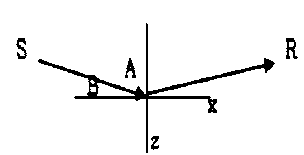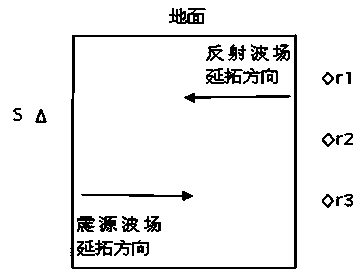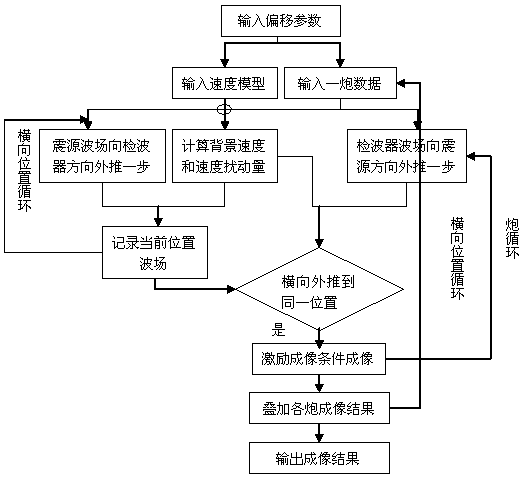Continuation imaging method suitable for cross-well seismic large-angle reflection conditions
A technology of cross-well seismic and imaging method, which is applied in seismology for logging records, etc. It can solve the problems of low imaging accuracy, difficulty in adapting to lateral changes in velocity field strength, and the influence of large-angle steep-dipping structures on imaging effects, etc.
- Summary
- Abstract
- Description
- Claims
- Application Information
AI Technical Summary
Problems solved by technology
Method used
Image
Examples
Embodiment 1
[0049] Example 1. A continuation imaging method suitable for cross-well seismic large-angle reflection conditions. According to the principle of wave equation imaging, in the case of removing the direct wave, the source wave field is extended laterally toward the geophone direction, and the geophone receiving wave field is laterally extended toward the seismic source direction Continuation, when the two wave fields are extended to the same position, imaging is performed using relevant imaging conditions, so as to realize lateral continuation imaging; the above-mentioned continuation imaging is performed on all shot points, and then multiple continuation imaging sections are superimposed. Cross-well seismic depth domain migration imaging sections can be obtained.
[0050] ① Principle of wave field continuation
[0051]Drawing on the mature experience of ground wave equation pre-stack depth migration imaging technology, the current one-way wave equation with high imaging accura...
PUM
 Login to View More
Login to View More Abstract
Description
Claims
Application Information
 Login to View More
Login to View More - Generate Ideas
- Intellectual Property
- Life Sciences
- Materials
- Tech Scout
- Unparalleled Data Quality
- Higher Quality Content
- 60% Fewer Hallucinations
Browse by: Latest US Patents, China's latest patents, Technical Efficacy Thesaurus, Application Domain, Technology Topic, Popular Technical Reports.
© 2025 PatSnap. All rights reserved.Legal|Privacy policy|Modern Slavery Act Transparency Statement|Sitemap|About US| Contact US: help@patsnap.com



